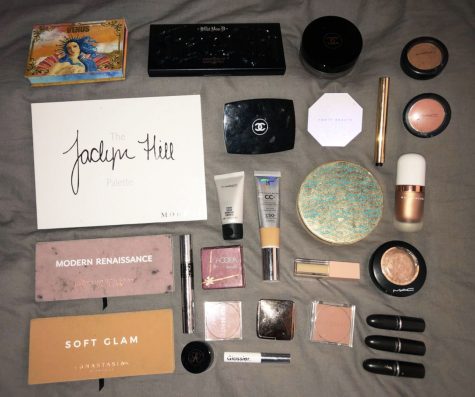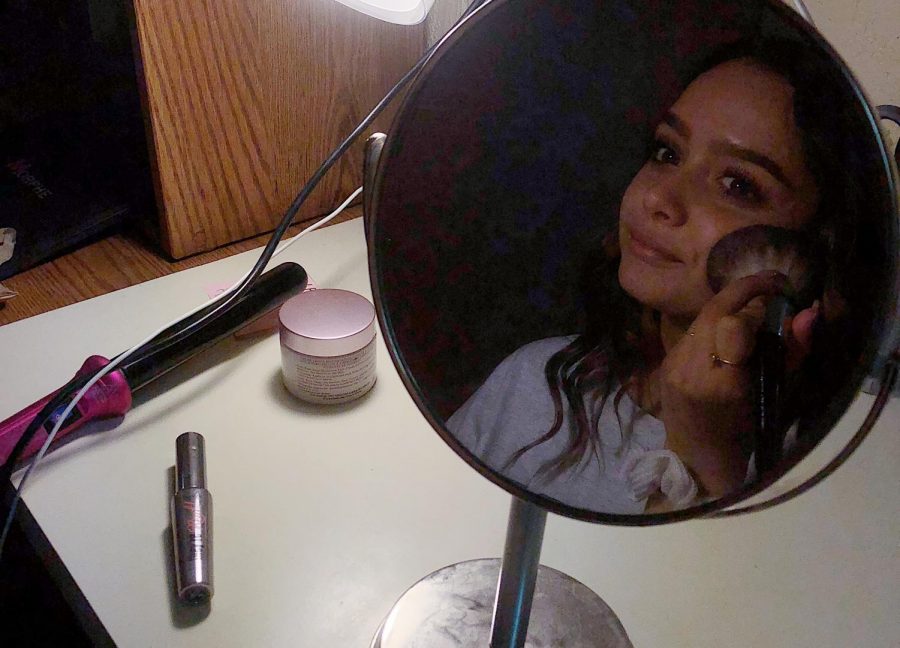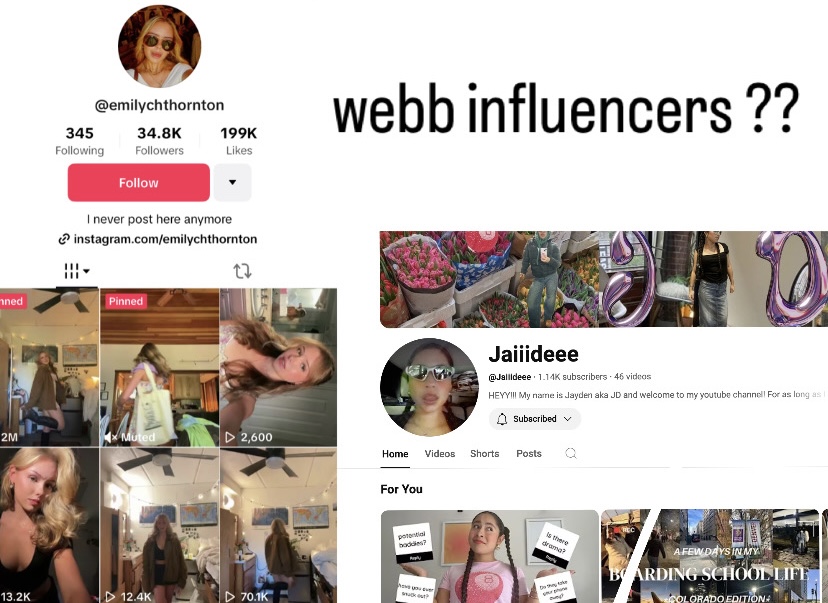Many of us rely on cosmetics every day. However, very few people consider the potential dangers of the products. There has been very limited research on the safety of ingredients commonly found in cosmetics because “although the FDA requires that cosmetics be safe, it does not have the authority to require companies to test their cosmetic products.” Additionally, little is known about how much of the substances are absorbed into the body and their long-term effects.
According to the American Cancer Society, “it takes many years after exposure to the substance for cancer to occur. That means the studies would need to go on for at least 10 or 20 years to see if a certain substance or cosmetic caused cancer.” There are also millions of combinations of substances in makeup that may change the effects of individual chemicals.
Common substances of concern are talc, titanium dioxide, and parabens. Long-term inhalation of talc powder is linked to lung cancer and other respiratory diseases among talc miners. In its natural form, talc contains asbestos, a widely proven cancer-causing substance. When inhaled in large quantities and over long periods of time, titanium dioxide could cause respiratory disease. Almost all powder-based products contain Talc–for example, the popular Hoola Bronzer by Benefit Cosmetics. According to Style Caster, “studies have shown that some parabens can mimic the activity of the hormone estrogen in the body’s cells.” Estrogenic activity is linked to breast cancer and is in Maybelline’s Fit Me Powder.
Many consumers’ concerns also arise from the loose regulations of makeup in the United States. Cosmetic safety is regulated by the FDA; however, according to the Environmental Working Group (EWG), “Nearly 90% of the 10,500 ingredients the FDA has determined are used in personal care products have not been evaluated for safety by the CIR, the FDA or any other publicly accountable institution.” Even more concerning, The EU has banned around 1,400 different chemicals from cosmetics and personal care products, while the U.S. has banned only 11.
Even when the product is tested, most tests on cosmetics are conducted for direct and short-term effects like skin or eye irritation. Long-term effects, on the other hand, are much harder to test for because this kind of research requires intensive studies on humans over a decade.
The substances themselves are linked to cancer; however, the information on whether they are harmful to humans in the form of makeup is inadequate to directly link certain cosmetic products to increased risks for cancer or other diseases. But do people care about the possible health concerns?
Out of ten products that have ingredient labels sampled randomly, five contained talc and parabens.

Despite being informed on the potential harms of her makeup, Vanessa Casillas (‘19) said, “Realistically, I would not stop using my favorite products. There are no proven harms yet.”
However, there are other students who prefer to stay on the safer side. Emily Stepanian (‘19), a daily makeup wearer said, “The powder is not an important part of my makeup routine. I could go either way. I would say it is better to be on the safe side.”
Tarren Duffy (‘22) only wears mascara on the daily. However, considering the potential harm, she said, “I would not wear it daily. Probably only for special occasions.”
Students’ feelings towards harmful substances are mixed. However, the general consensus is that people do care and would consider changing their routines. The good news is that there are small ways to be safer.
One way is to look at the ingredient labels on makeup and avoid products that contain talc, parabens and titanium dioxide. Another way is to use online resources like the Good Guide and Safe Cosmetics that will check the ingredient in your products for you and determine its safety level. The last way is to simply be careful when applying products near your eyes, mouth, and nose. Most of the harmful substances are only known to be dangerous when inhaled or injected. Additionally, since most powders contain talc, try your best to not inhale the product.
As for whether your cosmetics actually increase your chances of cancer, the answer is maybe. There is still not enough research to solidify any claims. The best thing to do is to buy products at your own discretion, read ingredient labels, and be aware of potentially harmful chemicals.















